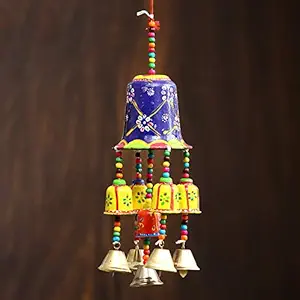Jay bhairava devaa,
prabhu jaya bhairava devaa,
jay kali aura gauraa,
devi krita sevaa,
Jay bhairava devaa...
Tumahi paapa uddhaaraka,
dukha sindhu taaraka,
bhakton ke sukha kaaraka,
bhishana vapu dhaaraka,
Jay bhairava devaa...
Vaahana shvaana viraajata,
kara trishuula dhaari,
mahimaa amita tumhaari,
jaya jaya bhayahaari,
Jay bhairava devaa...
Tuma bina sevaa devaa,
saphala nahi howe,
chaumukha dipaka darshana,
sabakaa dukha khowe,
Jay bhairava devaa...
Tela chataki dadhi mishrita,
bhaashaavali teri,
kripaa kariye bhairava,
kariye nahin deri,
Jay bhairava devaa,
prabhu jaya bhairava devaa
Introduction to Kalbhairav Aarti
Who is Lord Kalbhairav
Lord Kalbhairav is a fierce manifestation of Lord Shiva associated with time and destruction of evil; he is worshipped as guardian and protector, especially in Varanasi (Kashi) and Kashi Bhairav Sagars.
Mythology & Scriptural Roots
Kalbhairav is mentioned in many Puranas and local legends as the protector of Shiva temples and the fierce form that guards dharma, often associated with tales in Kashi Varanasi.
Importance in Daily Worship
Many devotees offer Kalbhairav Aarti daily in temples and homes, particularly on Bhairav Ashtami and during evening or night rituals for protection.
Symbolism of the Deity & Iconography
Kalbhairav is traditionally shown as a fearsome figure, carrying weapons, often accompanied by a dog, representing guardianship and the power to overcome fear and negativity.
Relation with Time
Fear & Protection Kalbhairav symbolizes the aspect of Lord Shiva that transcends time, removes fear, and is invoked for safety and overcoming dangers.
Lyrics & Meaning of Kalbhairav Aarti
Original Sanskrit / Hindi Lyrics
Original Aarti lyrics carry powerful expressions and praises having them preserved helps maintain authenticity and devotion.
Translation & Interpretation
Translating each verse helps devotees understand the meaning behind the praises and requests, deepening their spiritual connection.
Key Terms & Epithets Explained
Words like ‘Kala’, ‘Bhairava’, ‘Digambara’, ‘Kasika Puradhinath’ etc. have deep symbolic significance; explaining them helps with comprehension.
Verse-by-Verse Commentary
Breaking down verses helps show how each line summons attributes of Kalbhairav – protection, fearlessness, guardianship, divine justice.
How to Memorize & Recite Properly
Repetition, listening to temple recordings, using correct pronunciation, group recitation make the Aarti more impactful and memorized.
Rituals & Worship with Kalbhairav Aarti
Preparations & Items Needed
Prepare lamp, incense, flowers, bell, offerings, clean place, image or idol; purity and devotion matter a lot in worshipping Kalbhairav.
Auspicious Times & Days
Evenings, nights, Bhairav Ashtami, Tuesdays or Saturdays are considered especially auspicious for performing Kalbhairav Aarti.
Do’s & Don’ts in Worship
Avoid impure offerings, do not perform mechanically without devotion, avoid distractions, ensure chants are accurate and voice is respectful.
Enhancing Devotional Atmosphere
Using bells, incense, devotional music, chanting in group, lighting lamps, keeping silence before worship enhance spiritual impact.
Benefits & Spiritual Significance of Kalbhairav Aarti
Protection from Fear & Evil
Reciting Kalbhairav Aarti is believed to shield devotees from fear, malevolent influences, danger, and anxiety.
Inner Strength & Courage
Kalbhairav inspires courage, self-discipline, inner strength; empowers devotees to face trials with steadfastness.
Spiritual Cleansing & Peace
Performing the Aarti helps cleanse mind of negative thoughts, bring peace, calm restless minds, instill clarity.
Karmic Relief & Redemption
Devotees believe sincere worship can aid in release from past karmas, guilt, fear, and lead toward spiritual progress.
Community & Temple Traditions
Kalbhairav Aarti in temples during festivals or special nights strengthens community bonding, preserves rituals, connects devotees across generations.
Resources & Devotional Aids
Audio & Video Recording Links
Providing audio/video recordings of the Aarti, temple renditions, or apps helps devotees listen, learn, and share; increases dwell time and engagement.
Printable Lyrics / Translations PDF
PDF lyric sheets (script + translations) help in memorization, offline devotion, sharing with family/friends.
Mobile App & Multilingual Versions
Offering versions in multiple languages and via mobile apps makes the Aarti accessible to a broader audience.
Related Bhajans / Stotras Dedicated to Bhairav
Listing related devotional works helps users explore more content, improving site links and SEO.
Devotee Stories & Testimonies
Sharing stories of devotees who felt protected, aided, or experienced miracles after performing this Aarti builds emotional connection and trust.
Lord Kalbhairav is a fierce manifestation of Lord Shiva associated with time and destruction of evil; he is worshipped as guardian and protector, especially in Varanasi (Kashi) and Kashi Bhairav Sagars.
Kalbhairav is mentioned in many Puranas and local legends as the protector of Shiva temples and the fierce form that guards dharma, often associated with tales in Kashi Varanasi.
Many devotees offer Kalbhairav Aarti daily in temples and homes, particularly on Bhairav Ashtami and during evening or night rituals for protection.
Kalbhairav is traditionally shown as a fearsome figure, carrying weapons, often accompanied by a dog, representing guardianship and the power to overcome fear and negativity.
Fear & Protection Kalbhairav symbolizes the aspect of Lord Shiva that transcends time, removes fear, and is invoked for safety and overcoming dangers.
Original Aarti lyrics carry powerful expressions and praises having them preserved helps maintain authenticity and devotion.
Translating each verse helps devotees understand the meaning behind the praises and requests, deepening their spiritual connection.
Words like ‘Kala’, ‘Bhairava’, ‘Digambara’, ‘Kasika Puradhinath’ etc. have deep symbolic significance; explaining them helps with comprehension.
Breaking down verses helps show how each line summons attributes of Kalbhairav – protection, fearlessness, guardianship, divine justice.
Repetition, listening to temple recordings, using correct pronunciation, group recitation make the Aarti more impactful and memorized.
Prepare lamp, incense, flowers, bell, offerings, clean place, image or idol; purity and devotion matter a lot in worshipping Kalbhairav.
Evenings, nights, Bhairav Ashtami, Tuesdays or Saturdays are considered especially auspicious for performing Kalbhairav Aarti.
Avoid impure offerings, do not perform mechanically without devotion, avoid distractions, ensure chants are accurate and voice is respectful.
Using bells, incense, devotional music, chanting in group, lighting lamps, keeping silence before worship enhance spiritual impact.
Reciting Kalbhairav Aarti is believed to shield devotees from fear, malevolent influences, danger, and anxiety.
Kalbhairav inspires courage, self-discipline, inner strength; empowers devotees to face trials with steadfastness.
Performing the Aarti helps cleanse mind of negative thoughts, bring peace, calm restless minds, instill clarity.
Devotees believe sincere worship can aid in release from past karmas, guilt, fear, and lead toward spiritual progress.
Kalbhairav Aarti in temples during festivals or special nights strengthens community bonding, preserves rituals, connects devotees across generations.
Providing audio/video recordings of the Aarti, temple renditions, or apps helps devotees listen, learn, and share; increases dwell time and engagement.
PDF lyric sheets (script + translations) help in memorization, offline devotion, sharing with family/friends.
Offering versions in multiple languages and via mobile apps makes the Aarti accessible to a broader audience.
Listing related devotional works helps users explore more content, improving site links and SEO.
Sharing stories of devotees who felt protected, aided, or experienced miracles after performing this Aarti builds emotional connection and trust.


